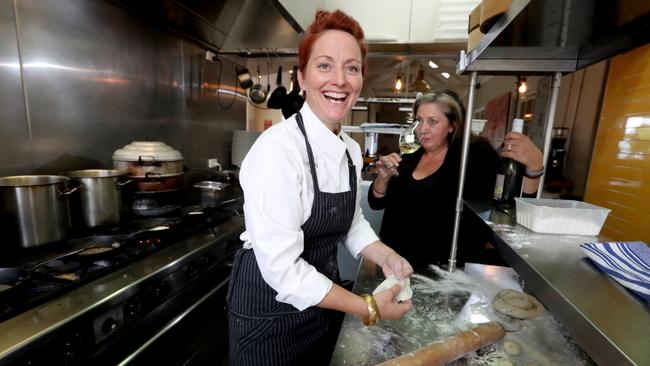Heroines of the kitchen set to host ‘best in the world’
Self-taught Slovenian chef Ana Ros, named “World’s Best Female Chef” this year, will delight Adelaide’s diners.

Self-taught Slovenian chef Ana Ros, named “World’s Best Female Chef” this year, will delight diners on her visit to Adelaide as part of Tasting Australia in May.
But her title, to be handed from incumbent two-star Michelin chef Dominique Crenn at the World’s 50 Best Restaurant awards in Melbourne in April, inevitably raises questions about gender balance in the industry given the awards do not have a “World’s Best Male Chef” category.
Tasting Australia organisers, who unveil the program today, have seized on Ana Ros’s new celebrity with two events highlighting women winemakers and chefs in the McLaren Vale wine region, 30km south of Adelaide.
Regional restaurant Salopian Inn owner Karena Armstrong, who will host “Heroines Table” on May 4, said her event would highlight influential women in food, those who have conquered stereotypes to run a kitchen and will feature Ms Ros, Coonawarra winemaker Sue Bell and organic producer Michelle McColl.
Ms Armstrong, who sought out female bosses such as Karen Martini and Kylie Kwong throughout her career, said women were perhaps 10 per cent of the industry’s elite, on par with similar numbers of women in the winemaking world.
“There aren’t as many women in the industry. They fall away when they have children, they leave the industry and when you have talent like Ana, it just needs to be said,” Ms Armstrong said.
Ms Ros, who took to the kitchen of her husband’s family restaurant Hisa Franko in rural Slovenia 17 years ago, said gender inequity in the industry was a natural process.
“It is not an issue. It is a natural process, because it is about hard physical work with no timetables and personal life. In a traditional society women are mothers, wives and these roles take a lot of time,” she said.
Fall from Grace winemaker Gill Gordon-Smith, who will host “Heroines Soul to Glass” on May 5, said the imbalance was changing with the next generation of women winemakers.
“We are 10 per cent of the industry, at university it’s 50-50,’’ she said. “There’s additional pressure if you want to have a family ... but it is changing.”
